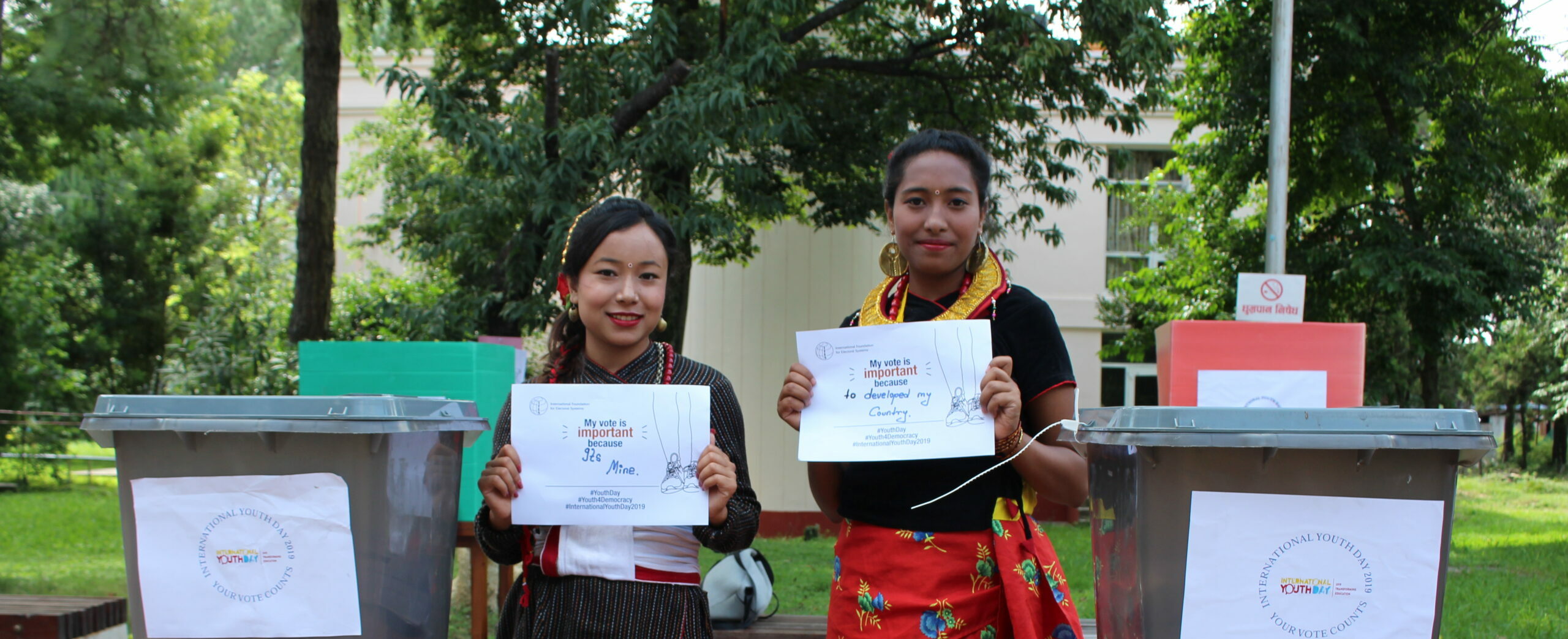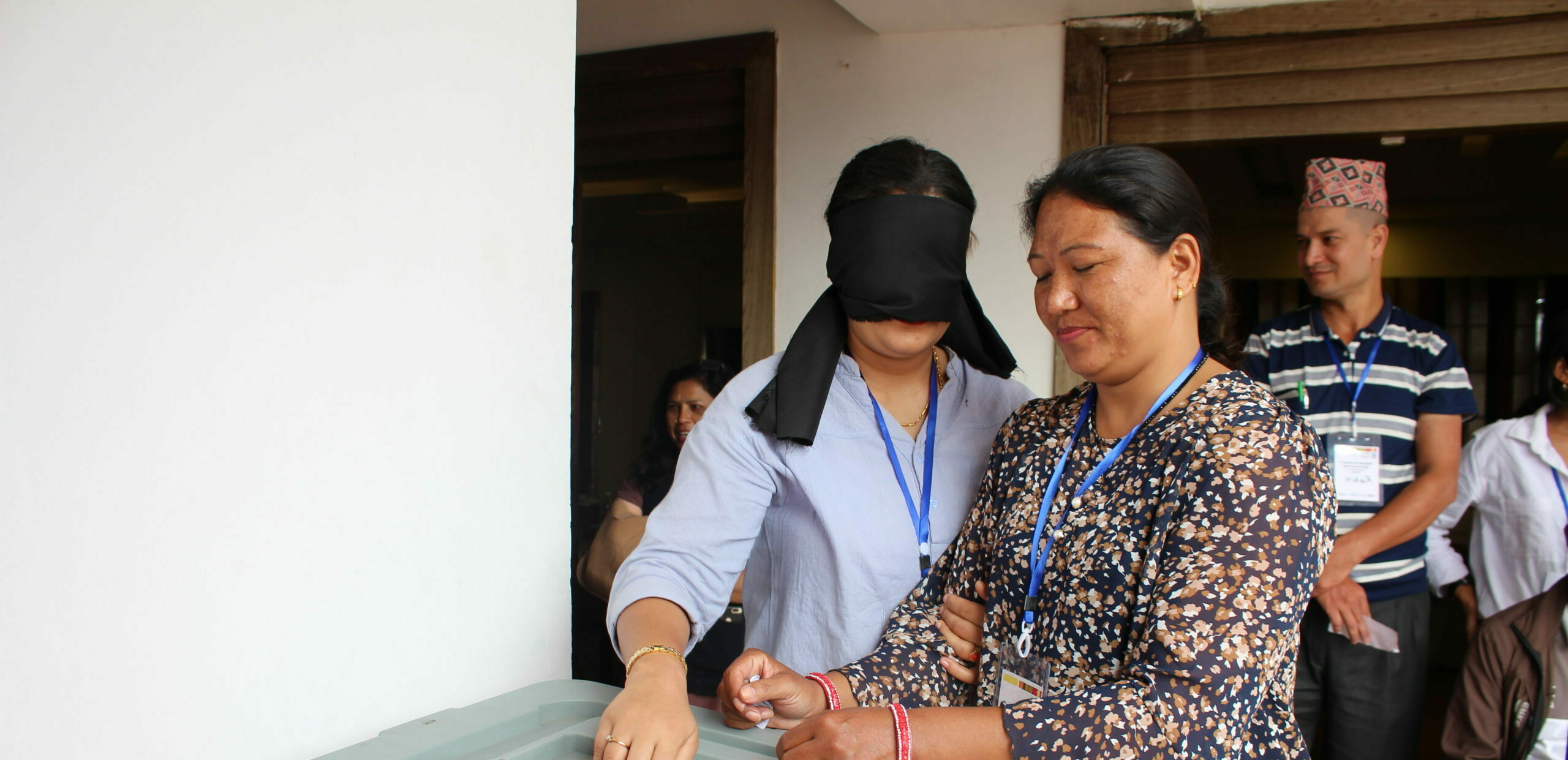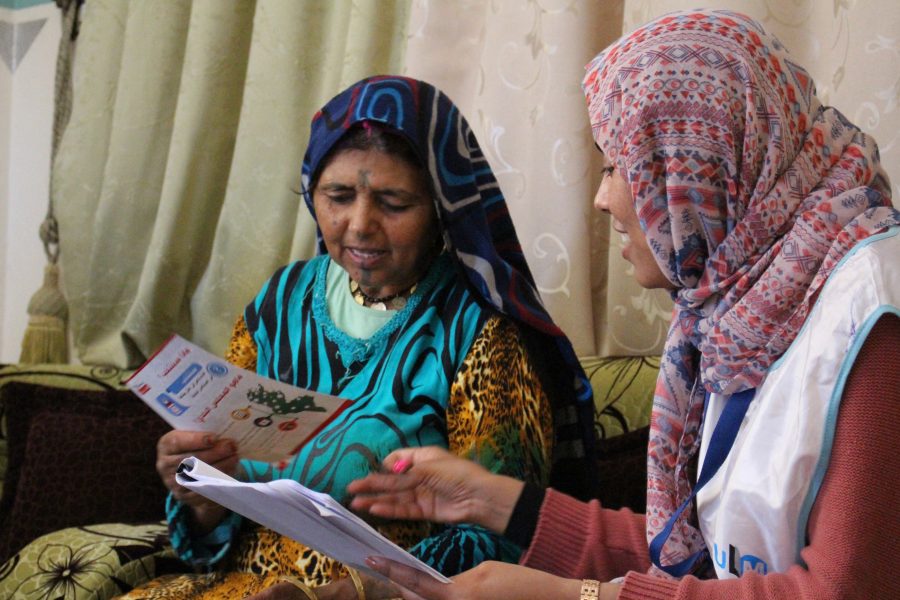
Democracy and inclusion are indivisible. CEPPS’s work shows that increased participation in political processes by historically marginalized groups, results in concrete democratic gains, including greater responsiveness to citizens’ needs, economic progress, increased cooperation across party and ethnic lines, more sustainable peace and security, as well as more resilient democracies. It is therefore only when all people (including women, people with disabilities, young people, lesbian, gay, bisexual, transgender, queer, and intersex (LGBTQI+) individuals, Indigenous peoples, and ethnic, religious, and linguistic minorities) have equitable opportunities to meaningfully participate in civic and political life that democracy flourishes.

CEPPS applies an inclusive development approach that is gender transformative and intersectional. This helps to ensure that CEPPS’s interventions address and remove systemic inequities and discriminatory norms, while identifying formal and informal barriers to participation.
By designing interventions that consider how people’s different identities impact their individual experiences, and addressing barriers to participation at the institutional, socio-cultural, and individual levels, CEPPS strives to manage overlapping forms of identity-based marginalization to ensure equitable access and participation in our programming while expanding political and social inclusion.
Find the CEPPS Inclusion Data Collection Guidelines here.
Political Economy Analysis with a Social Inclusion Lens
CEPPS supports members of marginalized communities to more effectively advocate for their rights, identify context-specific ways to work to dismantle systems of discrimination, and use political organizing and collective action to increase their visibility, raise public awareness, and build the power required to influence political processes and outcomes.
Women & Gender Equality
Women and girls make up more than half of the world’s population, yet they remain underrepresented globally in civic and political participation. When democracies fail to ensure meaningful access to the full range of civic and political rights of all members of society, and leaders fail to reflect the views and experiences of a diversity of constituents, those democracies are weakened and lose legitimacy.

CEPPS works to strengthen inclusive democracies and support the uptake of democratic values and processes with programming that seeks to transform discriminatory gender norms, policies, and institutions while promoting women’s rights and gender equality, as well as the full and meaningful participation of women and gender diverse individuals in all aspects of public life. CEPPS recognizes that women only achieve full civic and political inclusion when the patriarchal, discriminatory gender norms that constrain women’s participation at the socio-cultural, institutional, and individual levels are eliminated.
CEPPS integrates the promotion of gender equality and women’s empowerment into all aspects of programming to support and strengthen democratic values, culture, and practices around the globe. CEPPS determines the context-specific ways in which gender norms and inequalities influence access to and control over resources and decision-making to inform project design and to ensure that programs are gender transformative and reflect an intersectional approach that is responsive to the lived realities of diverse groups of women and other individuals.
CEPPS in the Field
CEPPS Resources
Online Violence Against Women CEPPS has developed a comprehensive suite of inclusive monitoring and evaluation tools to measure and document online violence against women in politics and inform programming and interventions to prevent it, mitigate it, and support survivors.
CEPPS Gender Assessment Framework CEPPS utilizes a joint gender assessment whenever possible. This assessment focuses on the gendered experiences of different groups of women in a country. Find out more about CEPPS Gender Assessments here.
DISRUPTHER: Accelerating Young Women’s Political Leadership – DISRUPTHER is an inclusive civic and political leadership module that supports an action-oriented focus on the political engagement of adolescent girls and young women, reframing who leads and enabling power shifts that support their voice and agency. (CEPPS/NDI)
Supporting Inclusive Early Party Development: Program Guidance – This program guidance, which includes the Dominant Party Splintering Assessment Tool, Armed Group to Party Assessment Tool, and Nonviolent Social Movement to Party Assessment Tool, aims to strengthen nascent political parties, especially during times of political transition, by ensuring women’s inclusion and their full and equal partnership in early party development. (CEPPS/NDI)
Local Government Gender Assessment and Action Planning Implementation Guide – This guide links local government staff and officials in collaboration with civil society organizations and members of the community to assess how well a local government addresses gender inequality and engages with diverse groups of women, leading to more gender-responsive governance structures, processes, and outcomes for communities. (CEPPS/NDI)
Interventions to End Online Violence Against Women in Politics – This resource outlines key interventions that technology platforms, governments, civil society organizations, and the media can take to make meaningful progress towards ending online violence against women in politics. (CEPPS/NDI)
#NotTheCost – Stopping Violence Against Women in Politics: A Renewed Call to Action – The renewed call to action identifies new opportunities to end both prevailing and newly emerging types of violence against women in politics. (CEPPS/NDI)
How the Coronavirus Risks Exacerbating Women’s Political Exclusion – This article outlines risks during the COVID pandemic (and as in other shock contexts) to women’s electoral participation and ways to safeguard women’s political inclusion. (CEPPS/NDI)
Gender-Sensitive Indicators for Early Warning of Violence and Conflict: A Global Framework This global framework addresses gaps and builds on existing efforts to mainstream gender in conflict early warning systems. This approach provides early warning indicators, as well as a five-step approach to integrating these factors into existing warning systems and violence monitoring efforts. (CEPPS/IFES)
Gender Equality & Election Management Bodies: A Best Practices Guide This guide provides election management bodies with a resource to develop an integrated approach to gender in electoral administration. (CEPPS/IFES)
Violence Against Women in Elections Framework: A Framework for Assessment, Monitoring, and Response To better understand and address the ways electoral violence creates a barrier to women’s participation, CEPPS has developed this framework to identify and address the unique issues related to gender-based election violence. (CEPPS/IFES)
Allies for Equality This program works with men to create an enabling environment for women’s equal and meaningful participation in politics and can be tailored for any group where a conversation about power and privilege could lead to meaningful change. (CEPPS/IFES)